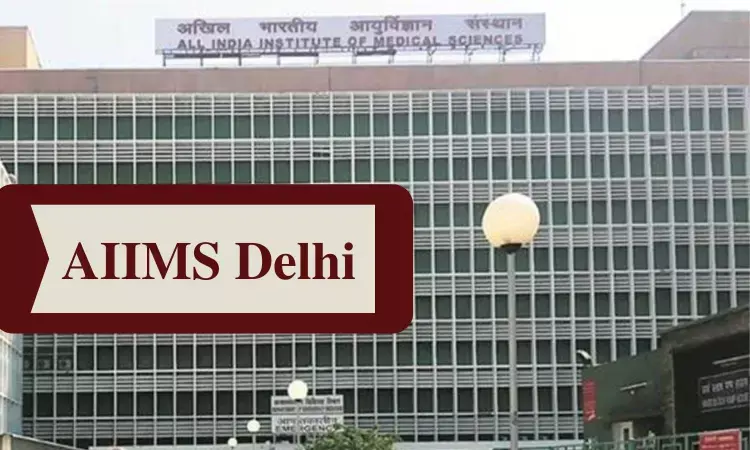- Home
- Medical news & Guidelines
- Anesthesiology
- Cardiology and CTVS
- Critical Care
- Dentistry
- Dermatology
- Diabetes and Endocrinology
- ENT
- Gastroenterology
- Medicine
- Nephrology
- Neurology
- Obstretics-Gynaecology
- Oncology
- Ophthalmology
- Orthopaedics
- Pediatrics-Neonatology
- Psychiatry
- Pulmonology
- Radiology
- Surgery
- Urology
- Laboratory Medicine
- Diet
- Nursing
- Paramedical
- Physiotherapy
- Health news
- Fact Check
- Bone Health Fact Check
- Brain Health Fact Check
- Cancer Related Fact Check
- Child Care Fact Check
- Dental and oral health fact check
- Diabetes and metabolic health fact check
- Diet and Nutrition Fact Check
- Eye and ENT Care Fact Check
- Fitness fact check
- Gut health fact check
- Heart health fact check
- Kidney health fact check
- Medical education fact check
- Men's health fact check
- Respiratory fact check
- Skin and hair care fact check
- Vaccine and Immunization fact check
- Women's health fact check
- AYUSH
- State News
- Andaman and Nicobar Islands
- Andhra Pradesh
- Arunachal Pradesh
- Assam
- Bihar
- Chandigarh
- Chattisgarh
- Dadra and Nagar Haveli
- Daman and Diu
- Delhi
- Goa
- Gujarat
- Haryana
- Himachal Pradesh
- Jammu & Kashmir
- Jharkhand
- Karnataka
- Kerala
- Ladakh
- Lakshadweep
- Madhya Pradesh
- Maharashtra
- Manipur
- Meghalaya
- Mizoram
- Nagaland
- Odisha
- Puducherry
- Punjab
- Rajasthan
- Sikkim
- Tamil Nadu
- Telangana
- Tripura
- Uttar Pradesh
- Uttrakhand
- West Bengal
- Medical Education
- Industry
Doctors at AIIMS Delhi remove giant cyst from 3-month-old Bangladeshi infant

New Delhi: A three-month-old boy from Bangladesh, suffering from a rare congenital condition, got a new lease of life after doctors at All India Institute of Medical Sciences (AIIMS) removed a protruding part of his brain which had turned into a giant cyst, larger than the size of his head.
Giant Occipital Encephalocele is a rare congenital condition in which there is a big sac-like protrusion or projection of the brain and the membranes that cover it through an opening in the skull.
Also Read: Doctors at KIMS Hospitals remove 12 kg liver from 50-year-old woman
If left untreated, the giant cyst can rupture, causing meningitis and then death, Dr Deepak Kumar Gupta, Professor of the Department of Neurosurgery at AIIMS told PTI.
During the three-hour-long surgery, doctors removed the cyst and also "covered the functional part of the brain by expanding the skull." "Large swelling from behind the skull causes difficulty in the positioning of the baby, difficulty in feeding and nursing and there is always a fear of sudden rupture of the swelling containing brain tissues," he said. Dr Gupta said the father of the child Abid Azad, Development Outreach and Communication Specialist, USAID, Bangladesh, had approached him a couple of months back.
"After evaluating the baby's condition, we decided to perform the surgery. On December 12, the surgery was done during which the non-functional protruding part of the brain which had taken the shape of a cyst was excised, all normal brain tissues were preserved and expansile cranioplasty was done at same time giving space to brain to continue to grow in future," Dr Gupta said.
Six days after the surgery, the child Arhat Aydin is doing well and is likely to be discharged on Monday.
While, Arhat's twin brother is healthy and is with his mother in Bangladesh, his father travelled all the way to Delhi for the surgery and is now taking care of him single-handedly, Dr Gupta said.
In this case, the neurosurgeon said the mother didn't take any folates (Folic acid tablets) which could be the reason behind this condition.
Folic acid prevents fetal neural tube defects.
"This case emphasises the need for folic acid supplementation in all women in the reproductive age group planning to conceive," he said.
"Mandatory folic acid fortification of centrally produced food staples to provide all woman of reproductive age who eat fortified foods with at least 150 microgram/day of folic acid has been recommended by WHO, 2009. "This is to reduce the prevalence of spina bifida and anencephaly, encephalocele and associated disability and mortality, thereby helping countries achieve their 2030 Sustainable Development Goals," he said.
Woman becoming pregnant should consume 400 microgram of folic acid/ day from fortified foods or supplements or both in addition to that obtained through a normal diet.
"Bangladeshi doctors wanted to perform the surgery. But as I did not find any satisfactory and successful cases, I had to explore options abroad. So I looked at options in India, Thailand, and Singapore.
Later, when two other private hospitals declined to perform the surgery, Dr Deepak from AIIMS agreed and showed his previous successful cases. I felt confident with him and his treatment procedures," Azad said.
Also Read:Assam: Doctors performs Rare Robotic Splenic surgery on 13-year-old boy
Kajal Rajput joined Medical Dialogues as an Correspondent for the Latest Health News Section in 2019. She holds a Bachelor's degree in Arts from University of Delhi. She manly covers all the updates in health news, hospitals, doctors news, government policies and Health Ministry. She can be contacted at editorial@medicaldialogues.in Contact no. 011-43720751


